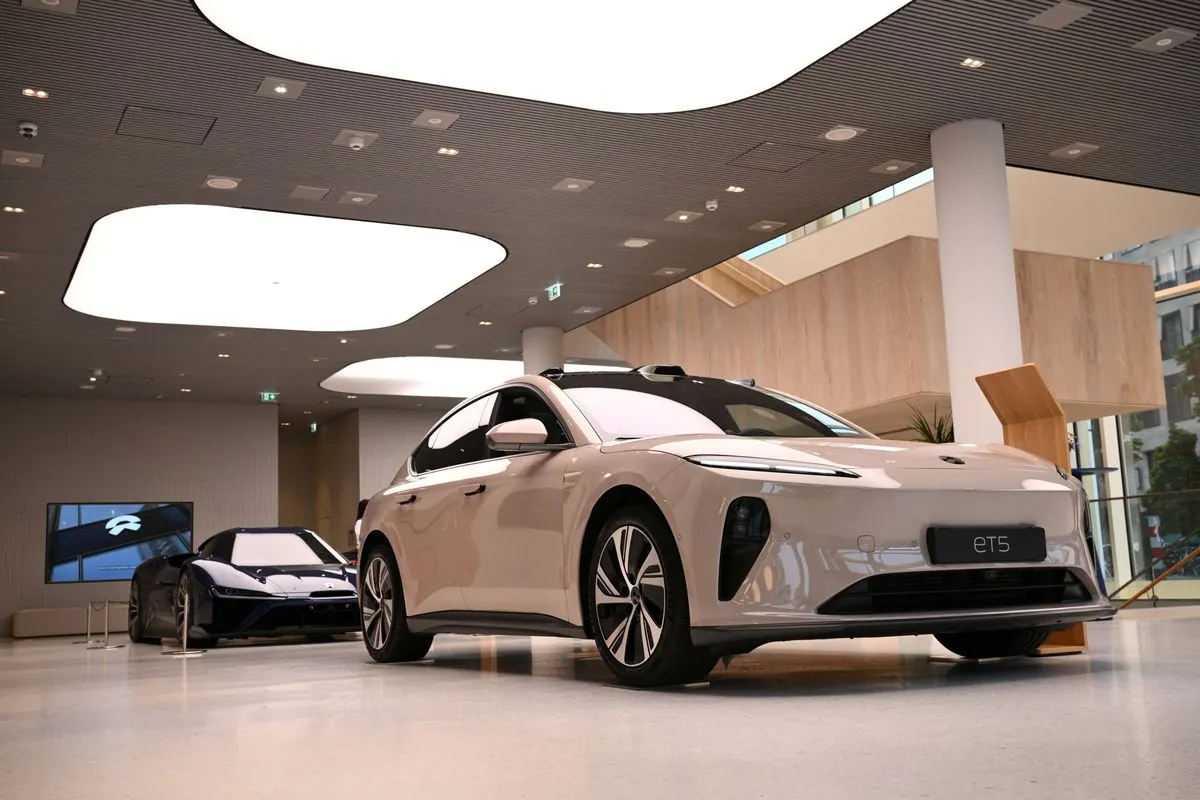The European Union has taken a significant step in addressing the growing dominance of Chinese electric vehicles (EVs) in its market. On September 29, 2023, EU member states narrowly approved tariffs of up to 35% on imported Chinese EVs, despite opposition from major economies like Germany. This decision, spearheaded by European Commission President Ursula von der Leyen, aims to level the playing field for European automakers.
While the tariffs target Chinese EV manufacturers such as BYD and SAIC, they fail to address other critical areas where China's influence is expanding. Hybrid vehicles, which combine internal combustion engines with electric motors, remain unaffected by these levies. This oversight comes at a time when hybrid sales are surging, outpacing pure electric vehicles in many markets.
The EU's decision also overlooks the crucial battery sector, where Chinese companies dominate global sales. Batteries can account for up to 40% of an EV's value, and Chinese-made cells are often a third cheaper than their European counterparts. This cost advantage stems from China's vast scale and domestic subsidies, which have helped increase battery exports to the EU tenfold in just five years, reaching $23.4 billion in 2023.
"We will continue to work hard on an alternative solution with China that is fully WTO-compatible, adequate in addressing the injurious subsidization established by the Commission's investigation, monitorable and enforceable."
The EU is not standing idle in the face of these challenges. Initiatives like the Net-Zero Industry Act and the Batteries Regulation aim to boost domestic clean technology manufacturing and ensure sustainable battery production. However, European companies like Sweden's Northvolt are struggling to compete with Chinese giants such as Contemporary Amperex Technology (CATL), whose subsidies increased by 35% in the first half of 2023.
As the world's third-largest economy, the EU faces a delicate balancing act. Increasing tariffs on Chinese batteries or hybrid vehicles could provoke retaliation, potentially affecting sensitive exports like battery materials or luxury goods. This situation highlights the complex interdependence between the EU and China, the world's largest EV producer.
The EU's decision to impose tariffs marks a significant moment in its trade relations with China. However, it also underscores the broader challenges facing European automakers as they strive to compete in the rapidly evolving EV market. As the October 30, 2023 deadline for implementing the tariffs approaches, the EU must navigate these complex issues carefully to support its automotive industry while avoiding a full-scale trade war with China.
